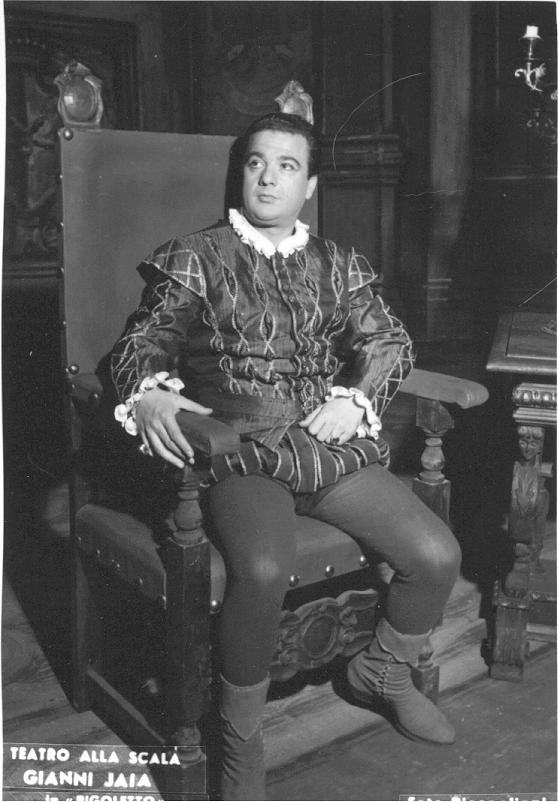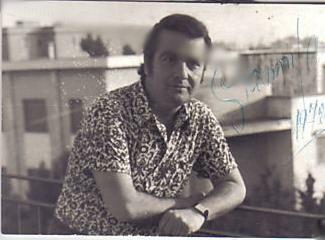His real name was Gianni Iaia, but on his autograph cards, he wrote "Jaia" himself – "Iaia" would seem to have been a
little too startling for most, even in Italy (it's anything but a common name).
Jaia studied first at the conservatory in Lecce, then with Raul Frazzi in Florence and Tullio Serafin in Rome.
He made his debut in Gent in 1949.
His repertory included:
I puritani, L'arlesiana, Anna Bolena, La favorite, Faust, La Juive, Il piccolo Marat, Silvano, La bohème, Madama
Butterfly, Guillaume Tell,
Mosè, Semiramide, Un ballo in maschera, Rigoletto, La traviata.
He sang in the following cities:
Amsterdam, Barcelona, Berlin, Bologna, Budapest, Firenze, Geneva, Gent, Hamburg, Lausanne, Lisbon, London, Lyon, Marseille,
Milano, Munich, Napoli, New York, Nice, Osaka, Palermo, Paris, Parma, Pittsburgh, Roma, Stuttgart, Tokyo, Torino, Trieste,
Vienna, Wexford, and Zürich.
Probably his greatest successes were: Lucia di Lammermoor in Parma in 1958, a true triumph with a
notoriously demanding audience; and a 1966 Rigoletto at the Paris Opéra, where he stepped in at the very last minute
for Georges Liccioni, singing in Italian in the midst of a performance
otherwise sung in French, and enraptured both audience and critics.
His idol was, their markedly different voices and styles notwithstanding, Tito Schipa.
Jaia continued to give occasional concerts into an advanced age: until the mid-1990s.
Reference

